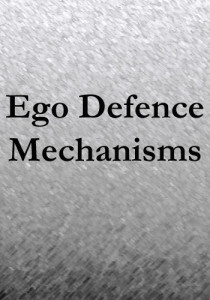Types of Defence Mechanisms
Defence mechanisms definition. They are an automatic response by the unconscious mind to protect our egos from potentially harmful outcomes and negative emotions such as anxiety.
Defence mechanisms are normal and healthy. However, when they get out of control they can cause anxiety disorders, phobias and obsessions. The unconscious mind can look to defend us in a few different ways. For example, denial, distortion, manipulation of the mind to distort reality and the projection of negative thoughts and feelings onto other people.
Different types of defence mechanisms
Repression: This is when the unconscious mind represses negative thoughts, therefore preventing them from reaching the conscious mind.
Projection: When the ego cannot handle certain negative beliefs or feelings it may project them onto another person, or a group of people.
Displacement: Displacement is when a person may take out their stresses and frustrations on another person or object.
Denial: Denial can be expressed in different ways. For example, denying responsibility, refusing to experience events, or blocking certain things from the conscious mind.
Regression: When somebody is faced with a stress or a bad situation they may regress to a past action they did, or way of dealing with problems, or reverting to a more primitive state.
Reaction formation: If a particular feeling causes anxiety the mind may try and hide that feeling by creating the opposing emotion. For example, hate for someone could turn to love.
The above forms of defense mechanisms are some of the most common ones according to the work and studies of Sigmund Freud.
Stockholm Syndrome
The Stockholm syndrome is when a victim identifies with their aggressor or captor. The victim may become more like their aggressor as a way of dealing with their fear.
Social Defense Mechanisms
Reject before you can be rejected. If someone has received a lot of rejection in their lives. The rejection could be from relationships, work or family situations, a person could end up rejecting others before they had the chance to hurt them (protecting the ego).
While this may be a very effective form of avoidance, it’s a very short sighted way of dealing with a situation. Someone may feel good, even feel superior in the short term. However, this type of defence mechanism could seriously reduce the quality of a person’s life. They may not take advantage of opportunities that may arise, in both work and in the personal life. This type of defence mechanism could be the result of some deep routed confidence issues resulting in a low self-image.





